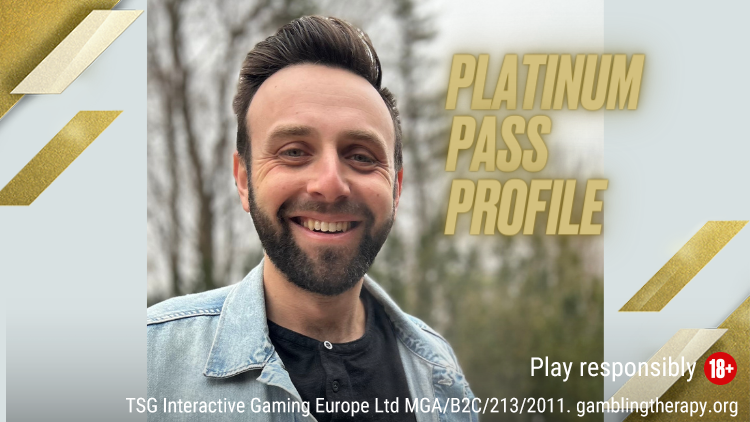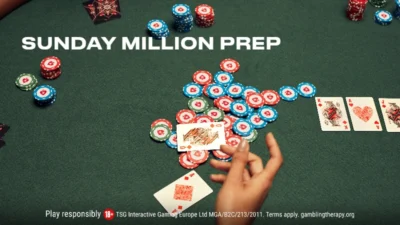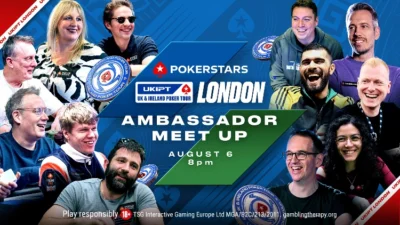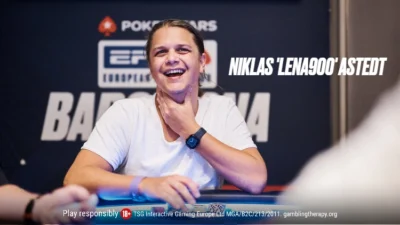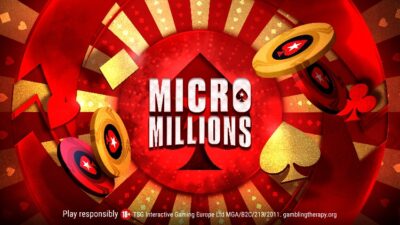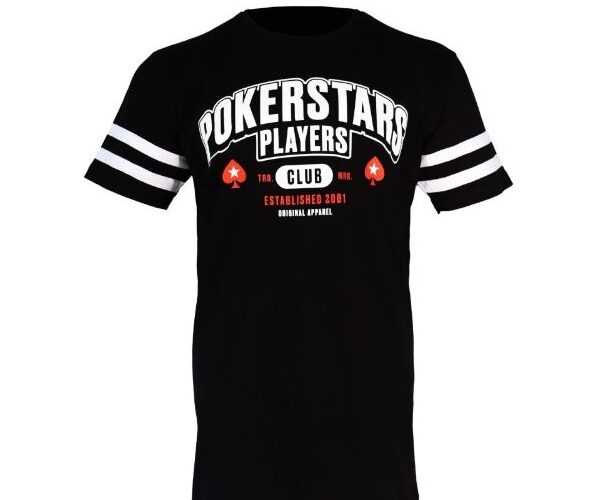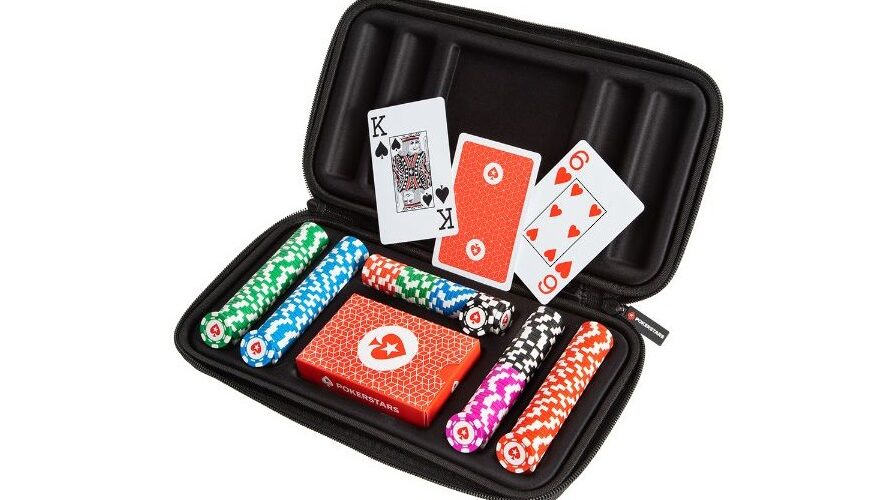Anyone who may be daunted by the five-day marathon that is the PokerStars Players Championship (PSPC) should have a quick chat with Jonathan Newman.
The actual start of the PSPC on January 30 will represent the 18th day of an odyssey Newman began back in October, when he started playing the series of tournaments on PokerStars known as the Ontario Championship of Online Poker (ONCOOP).
The 30-year-old from Toronto played for 17 days straight, never skipping a tournament, never taking a day off, quickly learning poker variants he had perhaps never played before.
Exhausting battle earns its reward
His goal was clear. He wanted to win a Platinum Pass to the PSPC and there was one on offer to the winner of the ONCOOP Leader Board. There was no prize for second place. Winner takes all. And Newman had no choice but to put the hours in to chase that dream ticket to the Bahamas.
“I just battled,” Newman says in a recent conversation. “I grinded. I ran well in important spots…Winner gets the package, second place gets zero. So it was a big bubble.”
As Newman says, it was a slog. It was a sweat. It was a struggle. But it turned out to be worth the extraordinary effort. When the tournament series closed after nearly three weeks, Newman had won six events outright and his name was at the top of the leader board. The Platinum Pass was his. The hard work had paid off.
“I was trying to really play for the win and luckily it worked out for me,” he says. “It was exhausting. I locked myself in my room. I didn’t listen to music. I didn’t have videos on on the side. I was just totally focused. I registered everything early. I didn’t late register at all. I didn’t miss an event. But it was an amazing experience. Surreal.”
MORE ABOUT THE PSPC:
ALL PSPC COVERAGE | WINNERS SO FAR | WHAT MAKES THE PSPC SPECIAL?
A bold decision to leave teaching behind
Winning the Platinum Pass also offered some measure of vindication for a career decision Newman took during the testing months of the coronavirus pandemic.
At a time of great uncertainty the world over, Newman took the risky decision to put a career as a schoolteacher on pause to focus on poker full-time, and to pursue something that had interested him for many years — even during those six years in the classroom.
Playing poker for a living is notoriously difficult, with wild emotional swings, long hours and volatile opponents. But, in many ways, teaching elementary school develops many of the key skills, and Newman fondly points to his time in the classroom as excellent preparation.
“You have to be able to be patient to be a teacher,” Newman says. “Sometimes it’s rewarding, sometimes it’s the most amazing career. But sometimes it’s very difficult. Sometimes it’s very draining. Honestly, when I think about playing poker 17 days in a row, I was just so grateful that I could even be doing this for a living. I was thinking, ‘This is so much easier than teaching every day.’ It’s a really privileged career.”
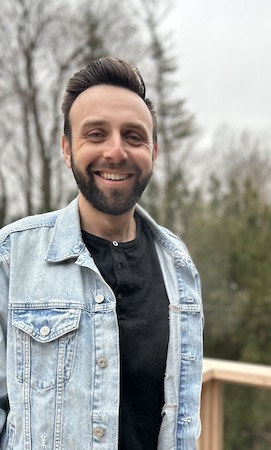
The classroom’s loss is poker’s gain
He continues: “I think being able to handle some swings is a great skill for a poker player. Whether it’s emotional, whether it’s practical…In general, just being able to adjust to your environment is a good skill that I learned from teaching. Teaching and poker are very different, for sure. But it’s kind of interesting that I’ve been able to do both.”
The big overlap between teaching and poker
The times of the pandemic were particularly demanding, Newman says, with students and teachers being forced to work remotely for many weeks, before being invited back to schools where Covid transmission was high and uncertainty and apprehension stalked the halls.
“We had to have a good mental game, so to speak, and to be able to handle some swings, some variance,” he says. “It’s funny, I think it gives you some perspective for sure.”
Newman also says that he was able to draw strength both from fellow teachers and from the students themselves, taking the view that good teachers should also always be learning. It’s another area in which his two most recent professions overlap.
Poker players speak often about developing networks for discussion and study, and Newman is an active member of a tight-knit Toronto poker scene, inviting criticism of his play as the best way to improve.
“The best teachers, in my experience, are the ones who are willing to put their egos aside and get feedback from others, get help from their colleagues and collaborate,” he says. “And I think the same is true of poker. The best poker players are always willing to be wrong, always willing to second guess their hands.”
Always learning
Although he says it’s crucial to display confidence at the tables and be certain of your decisions, he adds: “When you study, just having poker players tear you apart really helps. I would enjoy when my colleagues were able to watch me teach, and if I was able to watch them teach and learn from them. It can be really collaborative. Not every teacher likes to be collaborative, but I think the best teachers are.
“I taught so many students, even in Grade 4, where I thought: These kids are so much smarter than me. They know more than I do. Teaching isn’t about always knowing more, transmitting knowledge. It’s about, ‘How do you bring the best out of someone? What makes them motivated? How can you get them interested? How can you help them develop these skills?’ You’re trying to teach them to be independent and autonomous. Less so: ‘Here’s all the information and I’m giving it to you.’
“I would always learn stuff from the kids, even just life lessons about certain subjects we were studying. It’s quite humbling. You have to be a lifelong learner. If you think you’ve got all the answers, you’re shooting yourself in the foot, in life and in poker. The best players are always willing to question themselves.”
Sun-running to the Bahamas
Newman will face some new challenges in the Bahamas, where he’ll be sitting down in a $25,000 buy-in event for the first time. But he has been in a rich vein of form of late, winning the Main Event of the PokerStars.on Winter Series, where he plays as “fuzztacular”, only a matter of hours after talking to PokerStars Blog.
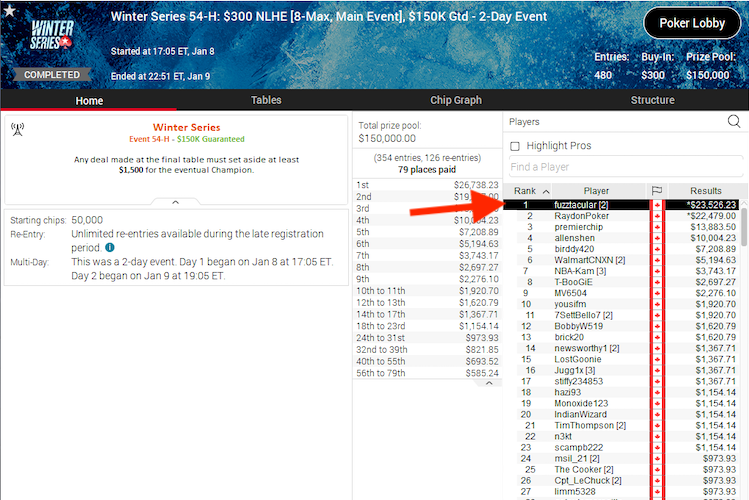
Newman was Winter Series champion only a few hours after talking to the Blog
“My hopes are high, my expectations are normal,” he says of the PSPC. “I play tournaments for a living so I understand it’s difficult to cash a tournament. I’m just going to play my best and hopefully things will work out. It’s going to be interesting, because I have $10K or less on my Hendon Mob, so people looking me up will think I’m just a recreational player. But hopefully I can put some regs in the blender.”
He adds that whatever happens, the PSPC chapter will offer him more opportunities to talk about poker, and to continue to advocate for the game that he thinks is sometimes unfairly stigmatised. He says he wasn’t ever able to bring up poker in the classroom, even though plenty of situations arose where a poker comparison or metaphor would have been perfect.
“I think poker can be a great game, it doesn’t have to be something that’s frowned upon,” Newman says. “It can be a negative thing for a lot of people. But for me it’s been a very positive thing. It taught me a lot of things about life. It taught me a lot about decision-making, about understanding risk, self-awareness, self control.”
If you happen to be sitting near Newman in the Bahamas, I suggest you listen and collaborate. You might just learn something yourself.
Back to Top


